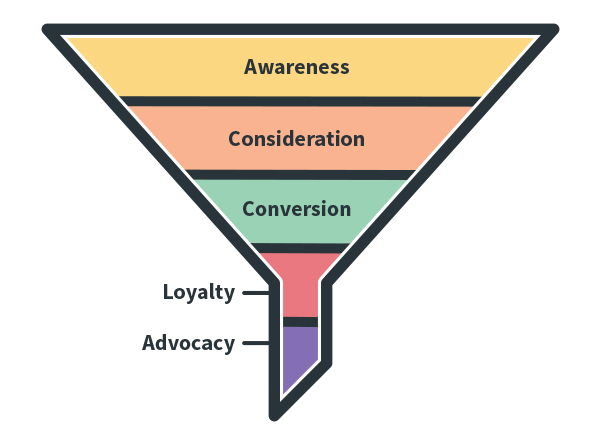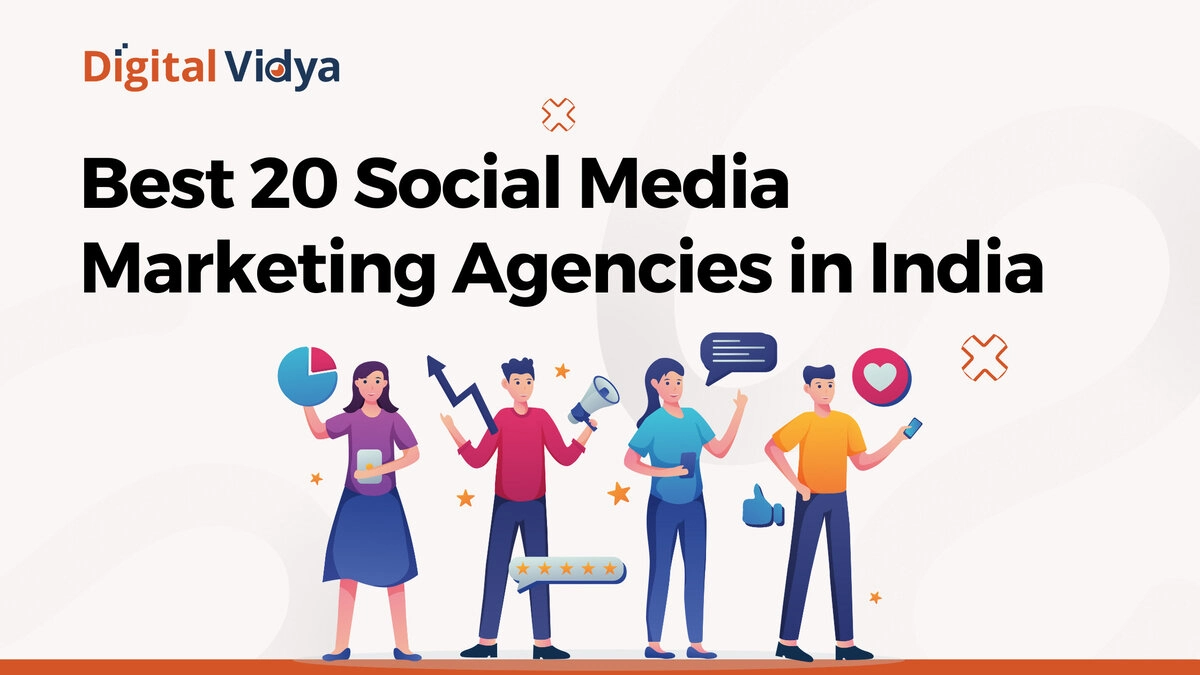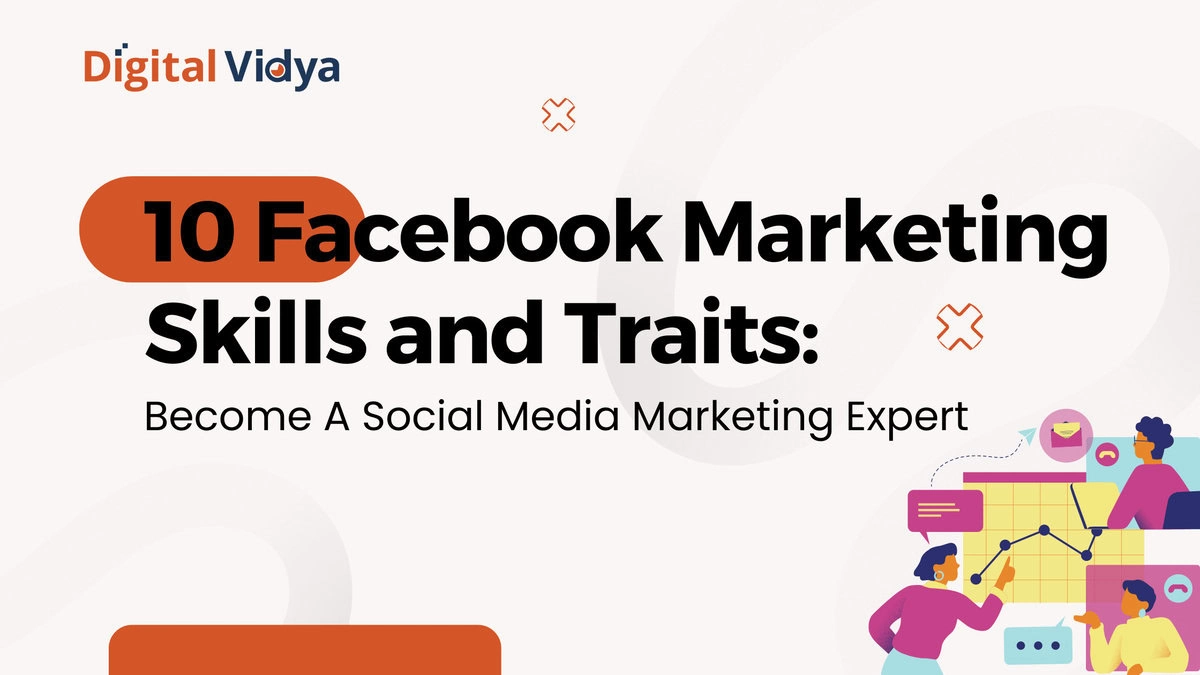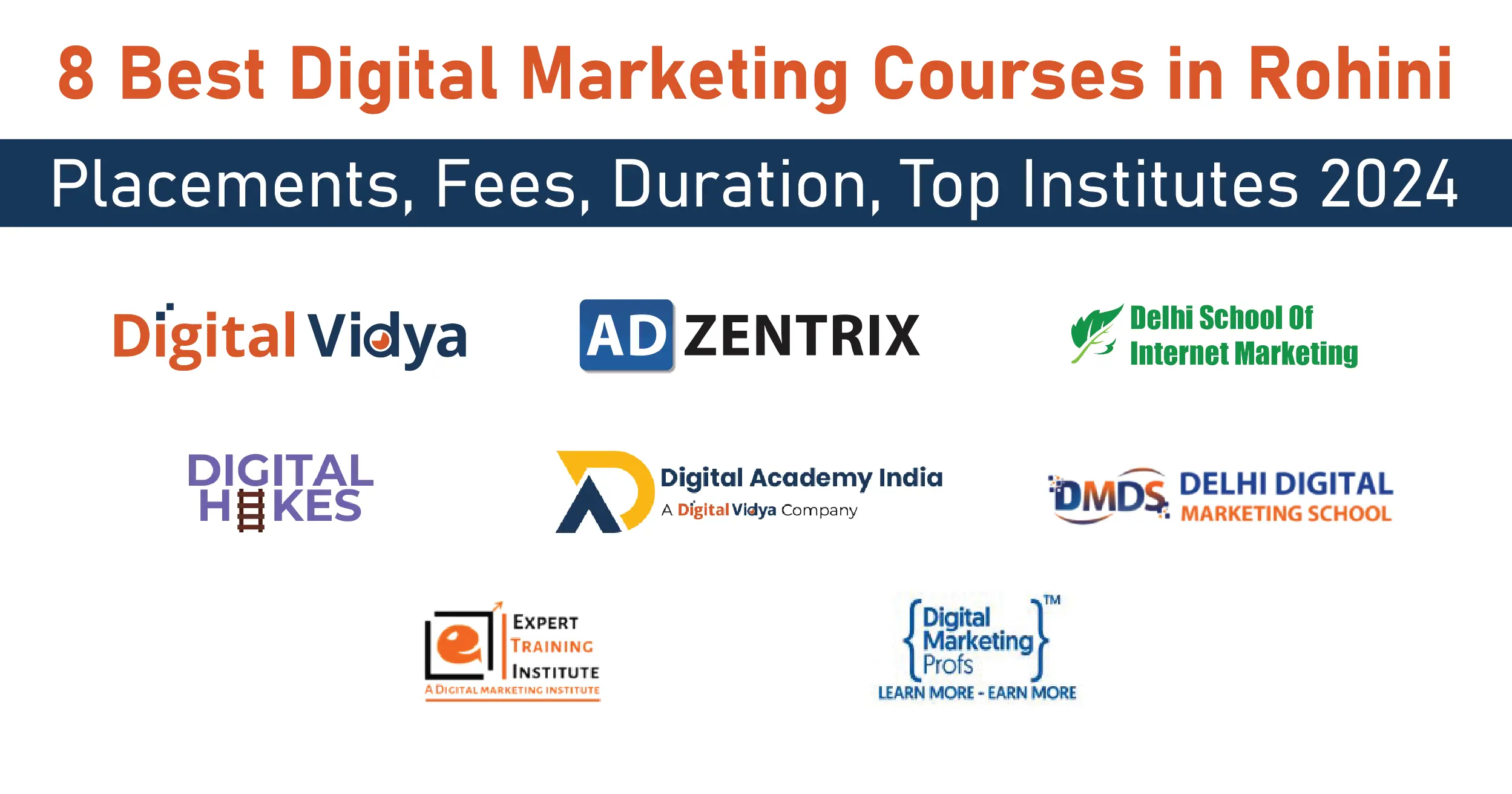The world of marketing is constantly evolving, and with the rise of new technologies and changing consumer behavior, the demand for skilled marketing professionals is higher than ever.
In fact, according to a recent study by the US Bureau of Labor Statistics, the employment of advertising, promotions, and marketing managers is projected to grow 10% from 2020 to 2030, faster than the average for all occupations.
The marketing industry is experiencing rapid change and growth as the years’ progress and evolve. With the increasing importance of digital marketing, the rise of social media, and the emergence of new technologies like artificial intelligence and virtual reality, marketers need to stay up-to-date with the latest trends and best practices to succeed in their careers.
This complete guide to building a career in marketing is designed to provide aspiring students and marketing professionals with a comprehensive overview of the industry, the skills needed to succeed, the strategies, and a path for building a successful marketing career.
Whether you are just starting out in your marketing journey or looking to take your career to the next level, this guide on a career in marketing will provide you with the information and insights you need to succeed in today’s competitive job market.
From developing essential marketing skills to gaining practical experience and advancing to higher positions in marketing, this guide covers everything you need to know to build a successful career in marketing.
Additionally, we will explore different MBA specializations, emerging marketing trends, and technologies that are shaping the industry, as well as strategies for staying ahead of the curve and achieving long-term success in your marketing career.
Overview of Marketing as a Career
Marketing is a crucial aspect of any business, and the success of a business often depends on how well it is marketed. In a nutshell, marketing is the process of promoting and selling products or services to potential customers.
Marketing has always been an important aspect of the business world, but its significance has grown even more with the advent of new technologies and the rise of digital marketing.
The goal of marketing is to understand the needs and wants of customers and create products and services that meet those needs, while also communicating the value and benefits of those products and services to potential customers.
There are several different areas of marketing, and each area has its own unique set of challenges and opportunities. Traditional marketing includes advertising, direct mail, events, and other forms of marketing that have been around for decades.
Digital marketing, on the other hand, includes online advertising, search engine optimization (SEO), social media marketing, and other forms of marketing that rely on digital technologies.
Content marketing involves creating valuable and informative content that is designed to attract and engage potential customers. Social media marketing involves using social media platforms like Facebook, Twitter, and Instagram to reach and engage with customers.
There are many different career paths in marketing, and the path you choose will depend on your skills, interests, and experience. Some common marketing roles include marketing coordinator, marketing manager, marketing director, and chief marketing officer (CMO).
In addition to these traditional roles, many emerging marketing careers are becoming more important in today’s marketing landscape, such as data analyst, marketing technologist, and customer experience manager.
In the next sections of this guide, we will dive deeper into each of these areas of marketing and explore the different career paths and job roles available in the marketing industry.
Developing Marketing Skills
Marketing is a dynamic and ever-changing field, requiring professionals to constantly develop and refine their skills. There are several essential marketing skills that professionals need to master to succeed in this industry. These include communication, creativity, data analysis, and project management.
Communication is a critical skill for marketing professionals, as they need to be able to effectively convey their ideas and strategies to clients, team members, and stakeholders. Creativity is another essential skill, as marketers need to be able to come up with innovative ideas and campaigns to capture the attention of their target audience.
Data analysis is also crucial in marketing, as it helps professionals to measure the effectiveness of their campaigns and make informed decisions based on the data. Project management is another key skill, as marketers need to be able to effectively manage their time and resources to ensure that campaigns are delivered on time and within budget.
Fortunately, these skills can be developed through a combination of education, training, and work experience. Many marketing professionals choose to pursue a bachelor’s or master’s degree in marketing, which provides a comprehensive education in the fundamentals of marketing, including marketing strategy, market research, and consumer behavior.
In addition to formal education, marketing professionals can also develop their skills through training and workshops. Many professional organizations offer training programs and certifications in various areas of marketing, such as digital marketing, social media marketing, and content marketing.
Finally, there are a variety of marketing certifications and courses available that can help professionals to develop and demonstrate their expertise in specific areas of marketing. These certifications and courses cover a wide range of topics, from search engine optimization (SEO) to email marketing and data analytics.
Overall, developing marketing skills requires a commitment to lifelong learning and professional development. By pursuing education, training, and certification opportunities, marketing professionals can stay up-to-date with the latest trends and techniques in the industry, and position themselves for success in their careers.
MBA Specializations and Career in Marketing
1. MBA in Finance
A postgraduate degree in finance, such as an MBA, gives students a thorough understanding of financial ideas like financial planning, investment analysis, risk management, and financial reporting. Students who earn this degree are prepared for senior finance positions across a range of businesses.
The purpose of an MBA in Finance is to give students the information and abilities necessary to efficiently manage financial resources.
Students gain knowledge about how to assess investment opportunities, examine financial documents, and make wise financial decisions. Also, the degree gives students a strong foundation in management, leadership, and business strategy.
| Job Profile | Average salary (INR) | Salary Range (INR) |
|---|---|---|
| Financial Analyst | 5,31,984 | 2.59L – 10L |
| Finance Manager | 10,09,276 | 4.31L – 20L |
| Operations Manager | 8,92,543 | 4.40L – 20L |
| Project Manager | 15,35,674 | 6.73L – 30L |
| Investment Banking Associate | 7,89,591 | 3.09L – 20L |
| Accounting Manager | 11,90,791 | 3.57L – 40L |
2. MBA in Sales & Marketing Salary
An MBA in Sales and Marketing is a postgraduate degree that prepares students for senior leadership roles in the field of sales and marketing. The degree equips students with a broad understanding of marketing concepts, as well as the knowledge and skills required to develop and implement effective sales strategies.
The role of an MBA in Sales and Marketing is to prepare students for leadership roles in sales and marketing departments across various industries.
Graduates with an MBA in Sales and Marketing are equipped with the skills and knowledge needed to develop and execute marketing plans, manage sales teams, analyze market trends, and measure the effectiveness of marketing campaigns.
| Job Profile | Average salary (INR) | Salary Range (INR) |
|---|---|---|
| Market Research Manager | 14,27,886 | 7.26L – 30L |
| Marketing Manager | 9,27,062 | 4.08L – 20L |
| Business Development Executive | 3,77,457 | 2.17L – 6.27L |
| Sales Manager | 7,56,700 | 3.07L – 20L |
| Relationship Manager | 5,80,758 | 2.87L – 20L |
3. MBA in Human Resource
An MBA in Human Resource Management is a postgraduate degree that provides students with the knowledge and skills needed to manage the human resources of an organization effectively. The degree prepares students for leadership roles in human resource departments across various industries.
The role of an MBA in Human Resource Management is to equip students with the skills and knowledge needed to manage employee recruitment, retention, and development.
Students learn about various aspects of human resource management, including employee relations, compensation and benefits, training and development, and talent management.
| Job Profile | Average salary (INR) | Salary Range (INR) |
|---|---|---|
| Human Resource Manager | 8,42,424 | 3.66L – 20L |
| Training and Development Manager | 7,57,721 | 3.43L – 20L |
| Human Resource Consultant | 5,69,115 | 2.20L – 20L |
| Executive Recruiter | 3,78,639 | 2.04L – 6.32K |
| Compensation and Benefits Manager | 15,41,399 | 6.86L – 30L |
4. MBA in Information Technology
An MBA in Information Technology (IT) is a postgraduate degree that combines business and technology principles to prepare students for leadership roles in the field of IT. The degree equips students with the skills and knowledge needed to manage IT projects, develop and implement IT strategies, and integrate technology solutions into business processes.
The role of an MBA in Information Technology is to prepare students for leadership roles in IT departments across various industries.
Graduates with an MBA in Information Technology are equipped with the skills and knowledge needed to manage IT projects, develop and implement IT strategies, and integrate technology solutions into business processes.
| Job Profile | Average salary (INR) | Salary Range (INR) |
|---|---|---|
| Project Manager | 14,29,462 | 5.56L – 20L |
| Business Analyst | 6,23,423 | 2.91L – 10L |
| Data Analyst | 5,95,716 | 2.83L – 10L |
| Information Technology Manager | 12,41,793 | 5.77L – 20L |
| Information Technology Consultant | 10,37,464 | 4.72L – 20L |
5. MBA in Business Analytics
An MBA in Business Analytics is a postgraduate degree that combines business and data analysis skills to prepare students for leadership roles in the field of data-driven decision-making. The degree equips students with the skills and knowledge needed to analyze complex business data, identify patterns and trends, and use that information to make informed business decisions.
The role of an MBA in Business Analytics is to prepare students for leadership roles in a variety of industries, including finance, healthcare, marketing, and technology.
Graduates with an MBA in Business Analytics are equipped with the skills and knowledge needed to analyze complex business data, identify patterns and trends, and use that information to make informed business decisions.
| Job Profile | Average salary (INR) | Salary Range (INR) |
|---|---|---|
| Data Analyst | 4,49,544 | 2.16L – 8.73L |
| Data Scientist | 7,86,829 | 2.80L – 20L |
| Research Analyst | 4,52,727 | 2.46L – 8.15L |
| Operations Analyst | 19,14,556 | 8.92L – 40L |
| Management Consultant | 11,86,476 | 5.36L – 20L |
6. MBA in Operations Management
An MBA in Operations Management is a postgraduate degree that equips students with the skills and knowledge needed to manage and improve business operations.
The degree covers a range of topics, including supply chain management, quality management, and project management, to prepare students for leadership roles in the field of operations management.
The role of an MBA in Operations Management is to prepare students for leadership roles in a variety of industries, including manufacturing, logistics, and service industries.
Graduates with an MBA in Operations Management are equipped with the skills and knowledge needed to manage and improve business operations, streamline processes, and increase efficiency.
| Job Profile | Average salary (INR) | Salary Range (INR) |
|---|---|---|
| Supply Chain Manager | 12,11,012 | 5L – 30L |
| Logistics Manager | 8,95,786 | 3.40L – 20L |
| Project Manager | 12,42,256 | 5.71L – 20L |
| Operations Manager | 10,40,256 | 4.80L – 20L |
| Plant Manager | 13,45,703 | 5.54L – 30L |
7. MBA in Entrepreneurship
An MBA in Entrepreneurship is a postgraduate degree that focuses on developing the skills and knowledge needed to start and run a successful business. The degree program covers a range of topics including business planning, marketing, finance, and strategy to help students build a strong foundation in entrepreneurship.
The role of an MBA in Entrepreneurship is to prepare students to become successful entrepreneurs by providing them with the skills and knowledge they need to start and grow their businesses.
Graduates with an MBA in Entrepreneurship are equipped with the skills and knowledge needed to identify business opportunities, develop business plans, and launch and grow successful businesses.
| Job Profile | Average salary (INR) | Salary Range (INR) |
|---|---|---|
| Management Consultant | 30,56,249 | 10L – 70L |
| Customer Success Manager | 4,18,545 | 2.38L – 6.48L |
| Business Development Executive | 3,19,639 | 2.17L – 4.63L |
| Client Relationship Manager | 2,79,864 | 1.56L – 4.81L |
8. MBA in Event Management
An MBA in Entrepreneurship is a postgraduate degree that focuses on developing the skills and knowledge needed to start and run a successful business.
The degree program covers a range of topics including business planning, marketing, finance, and strategy to help students build a strong foundation in entrepreneurship.
The role of an MBA in Entrepreneurship is to prepare students to become successful entrepreneurs by providing them with the skills and knowledge they need to start and grow their businesses.
Graduates with an MBA in Entrepreneurship are equipped with the skills and knowledge needed to identify business opportunities, develop business plans, and launch and grow successful businesses.
| Job Profile | Average salary (INR) | Salary Range (INR) |
|---|---|---|
| Event Manager | 4,77,894 | 1.91L – 20L |
| Public Relation Officer | 3,43,773 | 1.86L – 10L |
| Marketing Manager | 6,80,421 | 3.03L – 20L |
| Media Planning Manager | 4,09,756 | 2.08L – 10L |
| Corporate Communications Manager | 8,70,584 | 4.61L – 20L |
How to Build a Successful Career in Marketing
Marketing is a dynamic and ever-changing field, and building a successful career in marketing requires continuous learning, growth, and adaptation.
As you gain experience and develop your marketing skills, it’s important to have a long-term plan for your career and set goals for professional advancement.
1. Advancing to Higher Positions in Marketing
Marketing professionals have the opportunity to advance to higher positions in their field, including marketing manager, marketing director, chief marketing officer (CMO), and other executive roles.
These positions come with increased responsibility, higher salaries, and greater opportunities for leadership and strategy development.
To advance to higher positions in marketing, it’s important to continue developing your skills and knowledge, take on leadership roles in your organization, and stay up-to-date with the latest industry trends and technologies.
Building a strong professional network can also help advance your career, as it can provide opportunities for mentorship, collaboration, and job referrals.
2. Importance of Building a Professional Network in Marketing
Building a professional network is an essential aspect of career development in marketing. Your network can provide valuable support, guidance, and opportunities throughout your career, and can also help you stay informed about industry news, trends, and job openings.
To build a strong professional network in marketing, consider attending industry events and conferences, joining relevant professional organizations, and connecting with other marketing professionals on social media platforms like LinkedIn. Engage with your network regularly, offering support and advice as well as seeking it out when you need it.
3. Strategies for Career Advancement and Long-Term Success in Marketing
To build a successful and fulfilling career in marketing, it’s important to have a clear plan and set goals for professional growth and development. Here are some strategies to help you advance your marketing career:
- Develop a long-term plan for your career, including goals for professional development, skill-building, and leadership.
- Continuously learn and grow your marketing skills through education, training, and on-the-job experience.
- Seek out leadership opportunities within your organization, such as managing a team or leading a marketing initiative.
- Build a strong professional network through industry events, conferences, and online communities.
- Stay up-to-date with the latest marketing trends and technologies, and be willing to adapt and experiment with new strategies and tactics.
- Be open to feedback and constructive criticism, and use it to improve your skills and performance.
- Look for opportunities to work with mentors or coaches who can offer guidance and support in your career development.
By following these strategies and staying committed to your professional development, you can build a successful and rewarding career in marketing.
Marketing Career Trends
The marketing industry is constantly evolving, and marketing professionals need to stay up-to-date with the latest trends and technologies to remain competitive in the job market.
Here are some emerging marketing trends that are expected to shape the industry in 2024:
- Personalization: With the rise of AI and machine learning, marketers are now able to create highly personalized experiences for their customers. This trend is expected to continue in the coming years as marketers find new and innovative ways to use customer data to provide personalized content, recommendations, and offers.
- Interactive Content: Interactive content such as quizzes, polls, and surveys has become increasingly popular in recent years. This trend is expected to continue as marketers find new ways to engage their audience and create more immersive experiences.
- Voice Search Optimization: With the increasing popularity of smart speakers and virtual assistants, voice search is becoming more important for marketers. The marketers will need to optimize their content for voice search to ensure that their brand is visible to consumers who are using voice search.
- Augmented Reality: Augmented reality (AR) technology is becoming more accessible to marketers, allowing them to create interactive experiences that blend the physical and digital worlds. The trend is expected to continue as marketers find new ways to use AR to enhance the customer experience.
- Social Media Commerce: Social media platforms are becoming more integrated with e-commerce, allowing consumers to make purchases directly from social media. The trend is expected to continue as more brands adopt social media commerce strategies.
The above trends are just a few examples of how the marketing industry is evolving. New technologies such as blockchain, 5G, and virtual reality are also expected to impact the industry in the coming years.
As the industry continues to evolve, marketing professionals will need to stay up-to-date with the latest trends and technologies to remain competitive.
Keeping the above-mentioned trends in mind, one of the most successful options is entering the performance marketing industry.
Performance marketing is one of the sought-after skills required in any business enterprise. It has become more of a necessity, keeping in mind the audience active on the internet.
For any MBA or a person looking to build a career in marketing, digital marketing is the skill to learn.
How to Build a Successful Career in Digital Marketing
1. Resources
You can utilize several websites to learn digital marketing. You can get started by reading blog posts and articles regarding the topic. You could even think about enrolling in a free online marketing course.
2. Practical Experience
Experience cannot be replaced. Getting out there and practicing performance marketing is the finest way to learn it.
You can start by working on small projects either for your known people or freelance projects. You can start working on bigger projects once you’ve gained some experience.
3. Digital Marketing Bootcamp
To learn performance marketing, check out the DigitalVidya Digital Marketing Bootcamp, Pay After Placement Program. Live online classes and 100% practical experience are both included in the three-month instructor-led online program. A minimum CTC of Rs 4.5 LPA is what you may anticipate after finishing the program.
The Digital Marketing Bootcamp Placement Cell has already been successful in placing students in reputable companies with a competitive wage package.
Final Thoughts
In conclusion, a career in marketing can be a rewarding and dynamic profession for those who possess a combination of creativity, analytical skills, and business acumen.
Pursuing an MBA can provide the foundation needed for a successful career, but it is also important to continually develop and refine marketing skills throughout one’s career.
As the marketing industry continues to evolve, marketing professionals need to stay up-to-date on the latest trends and technologies in the field.
This is where performance marketing is the now and the future. Even marketing professionals of ages are learning performance marketing and recommending it to future marketers.
Performance marketing is also serving as an entry point in the industry for beginners and is becoming more reliable to build a career in performance marketing.
If you are looking to enter performance marketing and build a career in marketing, the Pay After Placement Digital Marketing Bootcamp can serve as a successful start to building your career and becoming a marketing head in the future.
FAQs
1. What are some essential skills needed for a successful career in marketing?
Communication, creativity, data analysis, and project management are some essential skills needed for a successful career in marketing.
2. What are some popular marketing job roles?
Popular marketing job roles include marketing manager, social media specialist, content marketing manager, digital marketing strategist, and marketing director.
3. How can one develop marketing skills?
One can develop marketing skills through education, training, work experience, and marketing certifications and courses.
4. What are some emerging marketing trends in 2024?
Some emerging marketing trends in 2024 include artificial intelligence, personalization, influencer marketing, and interactive content.
5. How can one advance to higher positions in marketing?
One can advance to higher positions in marketing by building a professional network, taking on new challenges, and developing a strong skill set in a specialized area of marketing.




















Hi Abhishek Mahendra,
Thank you for sharing your insights on “Complete Guide to Build a Career in Marketing”.
Your article was an interesting read and provided valuable information. I’m curious to hear your thoughts on this perspective.
Thank you.